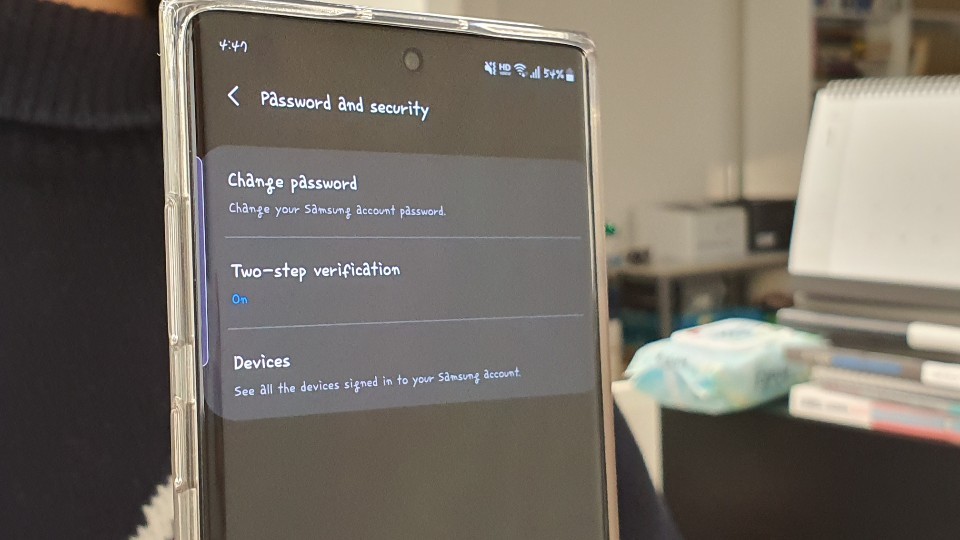Users of Samsung Galaxy smartphones and Samsung Cloud in South Korea are on high alert regarding personal security issues in the wake of private data thefts involving some celebrities.
A growing number of Galaxy users here are checking on the security status of their gadgets to ensure they follow the recommended security guidelines. Samsung Electronics has notified users to enhance their phone’s security by activating the two-step verification mode that double-checks user authenticity when accessing their cloud accounts.
 |
(By Song Su-hyun /The Korea Herald) |
Because the two-step verification is not switched on by default on Samsung phones unlike Apple’s iPhones, Galaxy users need to manually turn on the mode.
The two-step verification -- also called two-factor authentication -- requires users to input additional code numbers received as SMS after logging in with their username and password to access cloud accounts.
According to the device provider, the latest leaks of screenshots of mobile messenger KakaoTalk that revealed private chats between popular Korean actors Joo Jin-mo and Jang Dong-gun were caused by thefts of their username and password for their cloud accounts, not by external hacking attempts into the system.
“We recommend users to avoid using the same username and password used for other accounts and change them on a regular basis,” the company said in a statement.
In Korea, the number of private data leakage caused by username and password thefts is on the rise.
According to the Korea Internet and Security Agency, an average of around 400 cases are reported every month. The figure has spiked 10 times since 2010 in line with the increased number of smartphone users.
Information security experts say smartphone users will need to protect their private data and information by paying extra attention to such security threats and risks.
“In addition to changing the ID-password regularly and using the two-step verification feature, it is also important to update the software to the newest version in order to reduce such risks,” said Kim Seung-joo, professor at Graduate School of Information Security at Korea University.
By Song Su-hyun (
song@heraldcorp.com)




![[Herald Interview] 'Trump will use tariffs as first line of defense for American manufacturing'](http://res.heraldm.com/phpwas/restmb_idxmake.php?idx=644&simg=/content/image/2024/11/26/20241126050017_0.jpg)


![[Health and care] Getting cancer young: Why cancer isn’t just an older person’s battle](http://res.heraldm.com/phpwas/restmb_idxmake.php?idx=644&simg=/content/image/2024/11/26/20241126050043_0.jpg)
